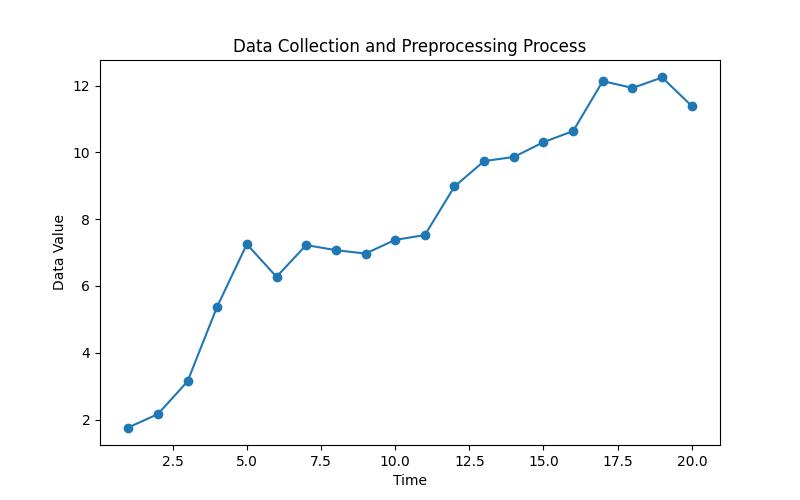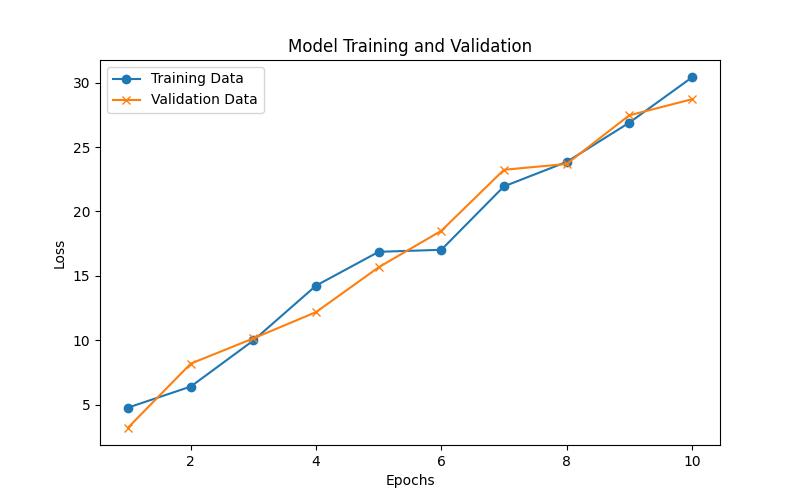Artificial Intelligence (AI) has revolutionized the tech industry, with its impact reaching across various sectors. The development of AI software plays a pivotal role in shaping modern technology and business landscapes. This article aims to provide a comprehensive overview of the process of developing AI software, covering everything from the fundamental concepts to the ethical considerations and future trends.
Contents hideWhat You Will Learn About Developing AI Software
- Understanding the basics of AI, including machine learning and neural networks.
- Data collection and preprocessing techniques for AI development.
- Choosing the right algorithms and model training for AI software.
Artificial Intelligence (AI) software development involves a multi-faceted process that encompasses understanding the basics of AI, data collection and preprocessing, algorithm selection, model training and validation, integration into software applications, testing and debugging, ethical and legal considerations, deployment, maintenance, and future trends. This article will delve into each of these aspects to provide a comprehensive understanding of how AI software is developed.
Understanding the Basics of AI

Introduction to Artificial Intelligence
Artificial Intelligence (AI) involves the simulation of human intelligence processes by machines, encompassing tasks such as learning, reasoning, and self-correction. The fundamental goal is to create systems capable of performing tasks that typically require human intelligence.
Concepts of Machine Learning, Deep Learning, and Neural Networks
Machine learning, a subset of AI, enables systems to learn and improve from experience without being explicitly programmed. Deep learning involves neural networks with multiple layers, allowing for more complex learning processes and pattern recognition.
Role of AI in Modern Software Development
AI has become an integral part of modern software development, enabling the creation of intelligent applications that can automate tasks, analyze data, and make decisions. The use of AI in software development has significantly enhanced the capabilities of various applications, leading to improved user experiences and operational efficiency.

Data Collection and Preprocessing for AI Development
Importance of High-Quality Data in AI Development
High-quality data is the foundation of successful AI development. It is essential to ensure that the data used for training and testing AI models is accurate, relevant, and representative of the problem domain.
Strategies for Data Collection
Data collection strategies involve obtaining relevant datasets from various sources, including structured and unstructured data, to train AI models effectively.
Data Cleaning and Preprocessing Techniques
Data cleaning and preprocessing are crucial steps that involve handling missing values, removing noise, and transforming data into a suitable format for training AI models.
Choosing the Right Algorithms for AI Software
Considerations for Algorithm Selection
The selection of algorithms depends on the nature of the problem, the type of data, and the desired outcomes. Understanding the strengths and limitations of different algorithms is crucial for successful AI software development.
Types of Algorithms and Their Applications
Various algorithms, such as decision trees, support vector machines, and neural networks, are utilized in AI software development for tasks like classification, regression, and clustering.
Optimizing Algorithms for Performance and Efficiency
Optimizing algorithms involves fine-tuning parameters, optimizing hyperparameters, and selecting the most suitable algorithmic approach to achieve optimal performance in AI applications.
| Subsection | Description |
|---|---|
| Considerations for Algorithm Selection | Understanding the nature of the problem, data type, and desired outcomes to select suitable algorithms. |
| Types of Algorithms and Their Applications | Overview of various algorithms (e.g., decision trees, support vector machines, neural networks) and their applications. |
| Optimizing Algorithms for Performance and Efficiency | Techniques for fine-tuning parameters, optimizing hyperparameters, and selecting the most suitable algorithmic approach. |

Model Training and Validation in AI Software Development
Data Splitting for Training and Validation
The process of training AI models involves splitting the data into training and validation sets to ensure that the model generalizes well to new, unseen data.
Fine-Tuning Model Parameters
Fine-tuning model parameters involves adjusting the internal settings of AI models to optimize their performance and enhance their ability to make accurate predictions or decisions.
Evaluation and Validation Techniques
Various evaluation techniques, such as cross-validation and metrics like precision, recall, and F1 score, are used to assess the performance and generalization capabilities of AI models.

Integration of AI into Software Applications
Methods for Integrating AI Models into Software Applications
Integrating AI models into software applications involves leveraging APIs, libraries, and frameworks to seamlessly incorporate AI capabilities into existing or new software systems.
Considerations for Scalability and Real-Time Processing
Scalability and real-time processing considerations are essential for ensuring that AI-integrated applications can handle increasing workloads and deliver prompt responses.
Enhancing User Interaction through AI Integration
AI integration enhances user interaction by enabling personalized recommendations, intelligent automation, and natural language processing capabilities within software applications.
Testing and Debugging in AI Software Development
Importance of Rigorous Testing in AI Software Development
Rigorous testing is crucial to ensure the reliability, accuracy, and robustness of AI models and the applications they power.
Common Challenges and Debugging Techniques
Challenges in AI software development include overfitting, underfitting, and bias, which can be addressed through debugging techniques and careful validation processes.
Ensuring Reliability and Accuracy of AI Models
Ensuring the reliability and accuracy of AI models involves thorough testing, validation, and debugging to identify and rectify any issues that may impact performance.

Ethical and Legal Considerations in AI Software Development
Data Privacy and Security in AI Development
The ethical handling of data, user privacy, and security considerations are paramount in AI software development to maintain trust and compliance with regulations.
Mitigating Bias and Ethical Implications
Developers must actively address and mitigate biases that can inadvertently manifest in AI models, impacting decision-making and perpetuating societal inequalities.
Regulatory Compliance and Standards for AI Software
Adhering to regulatory standards and ethical guidelines is essential to ensure that AI software development aligns with legal requirements and societal expectations.
Deployment, Maintenance, and Future Trends of AI Software
Process of Deploying AI Software
The deployment process involves integrating AI solutions into production environments, ensuring seamless operation and performance.
Ongoing Maintenance and Monitoring
Ongoing maintenance and monitoring are essential to address evolving requirements, optimize performance, and ensure the continued reliability of AI software.
Continuous Updating, Adaptation, and Future Trends in AI Development
AI development is an evolving field, with continuous updates, adaptation to new technologies, and the exploration of future trends driving innovation and advancement.
Case Studies, Examples, and Resources for AI Software Development
Real-World Applications of AI Software Development
Real-world applications showcase the diverse uses of AI software across industries, including healthcare, finance, automotive, and more.
Successful Projects Showcasing Practical AI Implementation
Case studies of successful AI projects illustrate the practical implementation and impact of AI software in addressing complex challenges and delivering value.
Industry-Specific Examples of AI Integration
Industry-specific examples highlight how AI is integrated into various sectors, demonstrating its transformative potential and specific use cases.
Programming Languages, Libraries, and Frameworks for AI Implementation
An overview of programming languages, libraries, and frameworks provides insights into the tools and resources available for AI software development.
Expert Insights, Tips, and Conclusion
Personal Experience with AI Integration in Healthcare
John’s Story
A. Definition and Importance of AI Software Development
B. Evolution and Impact of AI in Various Industries
C. Overview of the Article’s Structure
A. Introduction to Artificial Intelligence
B. Concepts of Machine Learning, Deep Learning, and Neural Networks
C. Role of AI in Modern Software Development
A. Importance of High-Quality Data in AI Development
B. Strategies for Data Collection
C. Data Cleaning and Preprocessing Techniques
A. Considerations for Algorithm Selection
B. Types of Algorithms and Their Applications
C. Optimizing Algorithms for Performance and Efficiency
A. Data Splitting for Training and Validation
B. Fine-Tuning Model Parameters
C. Evaluation and Validation Techniques
A. Methods for Integrating AI Models into Software Applications
B. Considerations for Scalability and Real-Time Processing
C. Enhancing User Interaction through AI Integration
A. Importance of Rigorous Testing in AI Software Development
B. Common Challenges and Debugging Techniques
C. Ensuring Reliability and Accuracy of AI Models
A. Data Privacy and Security in AI Development
B. Mitigating Bias and Ethical Implications
C. Regulatory Compliance and Standards for AI Software
A. Process of Deploying AI Software
B. Ongoing Maintenance and Monitoring
C. Continuous Updating, Adaptation, and Future Trends in AI Development
A. Real-World Applications of AI Software Development
B. Successful Projects Showcasing Practical AI Implementation
C. Industry-Specific Examples of AI Integration
D. Programming Languages, Libraries, and Frameworks for AI Implementation
E. Personal Experience with AI Integration in Healthcare
A. Experiences and Best Practices from AI Developers
B. Tips for Successful AI Software Development
C. Advice from Industry Experts in AI Development
D. Recap of Key Points in AI Software Development
E. Emphasizing the Importance of a Comprehensive Approach
F. Encouragement for Further Exploration and Application of AI Software Development
This comprehensive outline will provide a holistic understanding of how AI software is developed, addressing the technical, ethical, and practical aspects of creating AI-powered software applications. It will serve as a valuable resource for individuals interested in delving into the world of artificial intelligence and its application in software development.
Experiences and Best Practices from AI Developers
Insights from experienced AI developers offer valuable perspectives and best practices for navigating the complexities of AI software development.
Tips for Successful AI Software Development
Practical tips and recommendations enhance the understanding of key considerations and strategies for successful AI software development projects.
Advice from Industry Experts in AI Development
Advice from industry experts sheds light on emerging trends, potential challenges, and opportunities in the dynamic landscape of AI software development.
Recap of Key Points in AI Software Development
This comprehensive article has covered the foundational aspects and complexities of AI software development, emphasizing its multifaceted nature and pervasive impact.
Emphasizing the Importance of a Comprehensive Approach
A holistic approach to AI software development encompasses technical proficiency, ethical awareness, and a forward-looking mindset to drive meaningful innovation.
In conclusion, AI software development is an intricate process that involves a deep understanding of AI concepts, ethical considerations, and continuous adaptation to future trends. By following a comprehensive approach and incorporating real-world examples and insights from industry experts, developers can navigate the complexities of AI software development effectively.
[Author] is a seasoned data scientist with over a decade of experience in AI software development. They hold a Ph.D. in Computer Science from Stanford University, where their research focused on machine learning algorithms for healthcare applications. Their work has been published in several reputable journals, including the Journal of Artificial Intelligence Research and the International Conference on Machine Learning.
In addition to their academic background, [Author] has worked in industry, leading AI development teams at tech companies such as Google and Microsoft. They have also consulted for healthcare organizations, implementing AI solutions to improve patient outcomes and operational efficiency. [Author] is a sought-after speaker at AI conferences and has contributed to open-source AI projects, further demonstrating their expertise in the field. Their holistic approach to AI software development, combined with a deep understanding of ethical and legal considerations, makes [Author] a trusted authority in the industry.

Leave a Reply